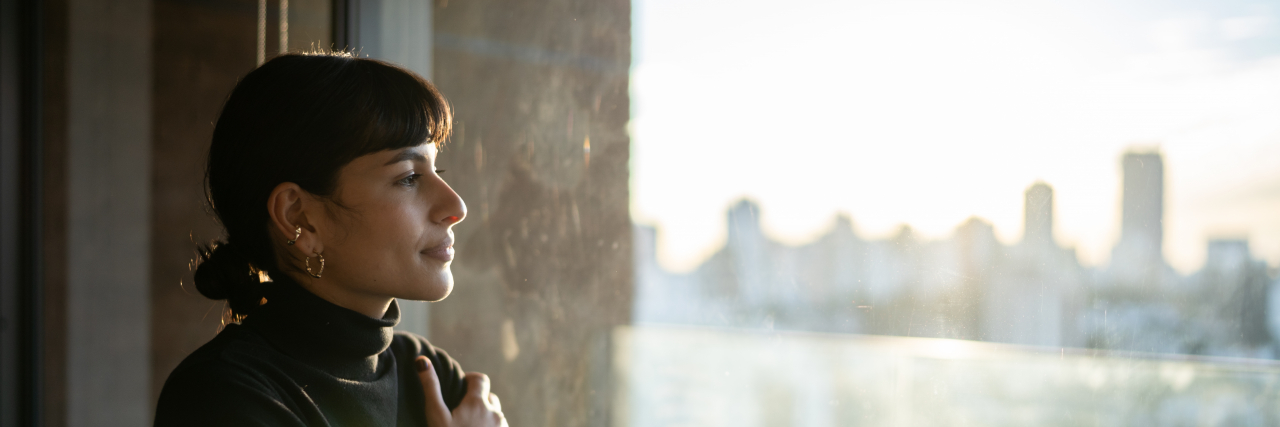What Hides Behind My Resting 'I’m OK' Face in Life With Chronic Illness
We’ve all heard of resting b*tch face. According to the dictionary, RBF is defined as “an unkind, annoyed, or serious expression that someone has on their face when relaxed, without intending to.”
I have decided I have resting “I’m OK” face. It’s similar in that it’s unintended, but appears as bright eyes, a smile, and kindliness. The truth is that this face has become a disguise for me. My disguise to hide the pain and struggles of living with two chronic, incurable illnesses and my mental health illnesses.
Resting b*tch face has a negative connotation, but resting I’m OK face may have a more positive association. Everyone wants us to be happy, find the positive, and look for the good. I learned this from a young age. Girls are prettier when they smile. Put on your game face. No one needs to know that shame you feel. Turn that frown upside down.
It’s become more profound with social media and the “good vibes only” mentality. Social media is filled with pictures of happy, perfect, put-together, and smiling individuals. We all know many pictures are staged. Mine are. I take 45 hoping just one turns out and then edit it for the best lighting and colors. I find the one where all three children are looking. I change positions to hide the clutter in the background. It’s all part of the game of appearing you have it all together and life is perfect. But we all know no life is perfect. In fact, my life has been a spiral of pain, suffering, and darkness.
So what happens when you are living in darkness and can’t see any light but maintain the resting I’m OK face? You are searching for any positivity, but it isn’t there. Then, I believe this disguise of the resting I’m OK face can be dangerous.
Following a mental breakdown and eight-day hospital stay, I have been struggling to even find the bottom of the hole I am living in, so there is absolutely no way to find any glimpse of light. However, I find myself going out into public, ever so slowly, one foot in front of the other, with an I’m OK face on. It’s misguided as people who probably mean well say “you look so healthy and happy,” “you’ve made a great recovery,” and “it must be so great to have that all behind you.”
The reality is, I’m still in it. I don’t know how to get out, and I’m also having to unlearn the facial expressions that have been deceiving me my whole life. Or maybe others can begin to understand that even though someone is smiling, they may not be OK. Maybe we could take an extra second and look someone in the eyes and ask, “Truly, how are you doing?”
Maybe we could all take a look at our resting faces and decide to remove the disguise to let others see us as we truly are. I know seeing someone in pain all the time does not meet the social guidelines of trying to find the positive in everything, but it also can be toxic for those who are truly struggling. Let’s all work on our resting “It’s OK that I’m not OK” face.
Getty image by FG Trade.

